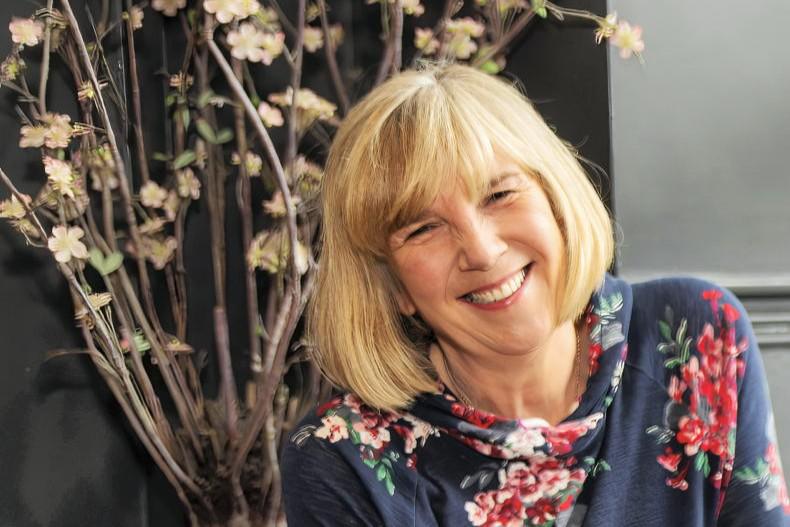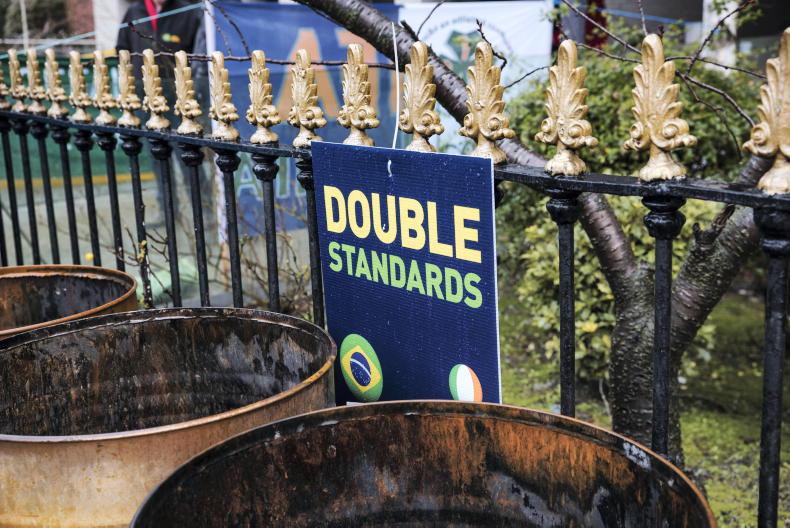On Friday of last week, my plan was to go to the Dáil to attend the vigil for Ashling Murphy, organised by the National Women’s Council.
However, it became apparent over the course of the day that vigils would be held across the country. I decided to attend Kilkenny Castle on Sunday and use the opportunity to talk to my young daughters about Ashling and what had happened to her.
There is very little if anything unwritten and unsaid at this point. I – like many – have read, listened, discussed, argued and thought hard about how women are treated.
Sadly, most people can tell a story about where they felt afraid
Many discussions centred on how we have learned to react to, counteract or avoid certain situations. Sadly, most people can tell a story about where they felt afraid.
Blame is everywhere. It is very hard not to think of one’s self and one’s own experience and both sexes suffer from fear.
Women violated in any way should not be blamed because of what they were doing at the time
The hashtag which was most commonly used on social media #shewasjustgoingforarun, was criticised because it should not have mattered what Ashling was doing.
Women violated in any way should not be blamed because of what they were doing at the time. But that is not the world we live in. Another hashtag that came in for criticism was #notallmen.
Men are not immune to violence
Of course it’s not all men but in the wake of Ashling’s murder, raising this point as a defence demonstrated a lack of awareness on behalf of those incensed.
Men are not immune to violence. I have often heard friends express fears for their young sons in relation to “one-punch” assaults or being set upon for standing up for girls in their company. An example of this was in the papers only two weeks ago when 17-year-old Alanna Quinn Idris’s friend stepped in to try to protect her and was stabbed for doing so.
Changing culture starts with talking
Once the vigils end, will our cultural norms shift? I have written before about how, growing up, we learned to not speak up when someone makes us uncomfortable; “manners that hide your discomfort to put someone else at ease about their behaviour”. This needs to stop. A culture change starts with parents (any adult with a role in a child’s life in fact) talking to children about respect.
For this week’s cover feature, Janine spoke with Jenny Fahy, a sex education specialist.
This is a vital read for parents because, let’s be honest, not many of us have great memories of those conversations whether they were instigated by parents or someone else. Let’s not continue that negative merry-go-round. Having conversations – not just one “big talk”– is vital to supporting children to grow up respecting themselves and others.
A male friend said to me in one discussion: “Language and attitudes are normalised, the ‘this is how it is’ attitude becomes the culture, acceptance of certain behaviours go unquestioned or unchecked. This didn’t just happen, the seed of this problem is sown in our homes, schools, colleges, workplaces... culture, culture, culture. How we talk, behave and even look at women needs to change.”
This stuck with me. As I am always talking about personal responsibility, I had to look inwards and think about my own reactions to misogyny.
How many times in my life have I been in company when a derogatory comment was made and I either issued a halfhearted reprimand or said nothing at all?
How many times have you?
Read more
Why I hate public transport - fear
Are politicians fair game to abuse? What about staff, or your kids or you?
On Friday of last week, my plan was to go to the Dáil to attend the vigil for Ashling Murphy, organised by the National Women’s Council.
However, it became apparent over the course of the day that vigils would be held across the country. I decided to attend Kilkenny Castle on Sunday and use the opportunity to talk to my young daughters about Ashling and what had happened to her.
There is very little if anything unwritten and unsaid at this point. I – like many – have read, listened, discussed, argued and thought hard about how women are treated.
Sadly, most people can tell a story about where they felt afraid
Many discussions centred on how we have learned to react to, counteract or avoid certain situations. Sadly, most people can tell a story about where they felt afraid.
Blame is everywhere. It is very hard not to think of one’s self and one’s own experience and both sexes suffer from fear.
Women violated in any way should not be blamed because of what they were doing at the time
The hashtag which was most commonly used on social media #shewasjustgoingforarun, was criticised because it should not have mattered what Ashling was doing.
Women violated in any way should not be blamed because of what they were doing at the time. But that is not the world we live in. Another hashtag that came in for criticism was #notallmen.
Men are not immune to violence
Of course it’s not all men but in the wake of Ashling’s murder, raising this point as a defence demonstrated a lack of awareness on behalf of those incensed.
Men are not immune to violence. I have often heard friends express fears for their young sons in relation to “one-punch” assaults or being set upon for standing up for girls in their company. An example of this was in the papers only two weeks ago when 17-year-old Alanna Quinn Idris’s friend stepped in to try to protect her and was stabbed for doing so.
Changing culture starts with talking
Once the vigils end, will our cultural norms shift? I have written before about how, growing up, we learned to not speak up when someone makes us uncomfortable; “manners that hide your discomfort to put someone else at ease about their behaviour”. This needs to stop. A culture change starts with parents (any adult with a role in a child’s life in fact) talking to children about respect.
For this week’s cover feature, Janine spoke with Jenny Fahy, a sex education specialist.
This is a vital read for parents because, let’s be honest, not many of us have great memories of those conversations whether they were instigated by parents or someone else. Let’s not continue that negative merry-go-round. Having conversations – not just one “big talk”– is vital to supporting children to grow up respecting themselves and others.
A male friend said to me in one discussion: “Language and attitudes are normalised, the ‘this is how it is’ attitude becomes the culture, acceptance of certain behaviours go unquestioned or unchecked. This didn’t just happen, the seed of this problem is sown in our homes, schools, colleges, workplaces... culture, culture, culture. How we talk, behave and even look at women needs to change.”
This stuck with me. As I am always talking about personal responsibility, I had to look inwards and think about my own reactions to misogyny.
How many times in my life have I been in company when a derogatory comment was made and I either issued a halfhearted reprimand or said nothing at all?
How many times have you?
Read more
Why I hate public transport - fear
Are politicians fair game to abuse? What about staff, or your kids or you?









SHARING OPTIONS